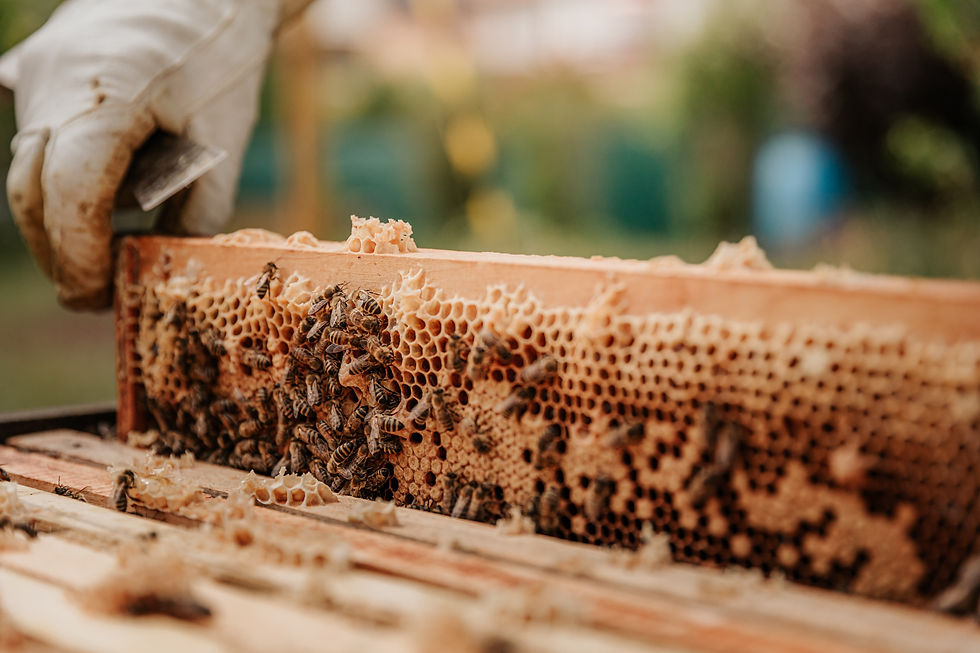
BeeKeeping
Beekeeping is the practice of maintaining colonies of bees for the purpose of harvesting their honey and other products. It involves providing suitable hives for the bees to live in, as well as managing their health and wellbeing. Beekeepers also play a critical role in the pollination of crops, helping to ensure the growth and production of many important foods.
Beekeeping is a fascinating and rewarding hobby that has been practiced for thousands of years. The appeal of beekeeping lies in the importance of bees to the environment, the production of delicious honey, and the challenge of caring for these complex and fascinating insects.
Beekeeping involves the care and management of bee colonies, typically in hives. The basic tools of beekeeping include a bee suit, gloves, hive tool, smoker, and brush. A beekeeper must have a good understanding of bee behavior and biology to keep the colony healthy and productive.
One of the most important aspects of beekeeping is ensuring the health and well-being of the colony. This involves monitoring the health of the bees, managing pests and diseases, and providing the bees with a healthy environment in which to thrive. A well-managed bee colony can produce a significant amount of honey, as well as other products such as beeswax, pollen, and propolis.
Another aspect of beekeeping that makes it so interesting is the opportunity to observe and learn about the complex behavior of bees. Bees are social insects that communicate with each other through a complex system of pheromones, dances, and other behaviors. By observing the behavior of the bees, a beekeeper can learn a great deal about the health and productivity of the colony.
Beekeeping also offers the opportunity to connect with nature and contribute to the health of the environment. Bees are important pollinators that help to fertilize plants and ensure the growth of crops and flowers. By keeping bees, a beekeeper can help to support the health and vitality of local ecosystems.
Overall, beekeeping is an interesting and rewarding hobby that offers a unique opportunity to learn about the behavior and biology of bees, contribute to the health of the environment, and produce delicious honey and other products. With a little knowledge and the right equipment, anyone can become a successful beekeeper and enjoy the many benefits that come with this fascinating hobby.
https://www.parents.com/baby/feeding/when-can-my-baby-eat-honey/ (One of the benefits of beekeeping is you get honey and honeycomb)
Bees can fly up to 15 miles per hour, and beat their wings up to 200 times per second to stay airborne.
Bees can recognize human faces, and can even remember individual faces for up to two days.
Bees communicate with each other using a dance known as the "waggle dance", which tells other bees the location of a food source.
Queen bees can lay up to 2,000 eggs per day during the peak of the breeding season.
The average lifespan of a worker bee is only six weeks, but a queen bee can live for several years.
Bees have five eyes - two large compound eyes and three smaller simple eyes.
Bees can see ultraviolet light, which helps them navigate to and from flowers.
Bees can fly at higher altitudes than Mount Everest, and have been spotted at heights of up to 29,000 feet.
Honeybees are the only insect that produce food that is consumed by humans.
Bees are responsible for pollinating around one-third of the world's food crops, making them essential to global food production.
Hobby Traits
Each hobby has unique characteristics that fit within these ten categories. We rank how well each hobby fits into these ten categories. We invite everyone to take our quick "test" to help themselves determine which categories are most closely related to them.
7
Competition
42
Beauty and Renewal
6
Social
Physical Outlet
71
29
Intellectual
10
Collecting and Ranking
Exploration
74
Creation and Expression
55
Mastery and Control
82
72
Good Vibes
https://grocycle.com/beekeeping-for-profit/ (you can have fun with your bee boxes)
Beekeeping, or the practice of keeping honeybees, has been around for thousands of years, but it wasn't until the 16th century that it began to gain popularity in Europe. At the time, honey was a valuable commodity and was used for both food and medicine.
One factor that contributed to the rise in beekeeping was the invention of movable frame hives, which allowed beekeepers to more easily manage their colonies and harvest honey without destroying the entire hive. This innovation was first developed in the early 18th century by a European beekeeper named Jan Dzierzon.
Another reason for the growth of beekeeping in the 16th century was the spread of knowledge about honeybee behavior and biology. This knowledge allowed beekeepers to better understand how to care for their hives and increase their honey yields.
Finally, the rise of beekeeping was also connected to the broader trends of agricultural and technological innovation that characterized the European Renaissance. As people became more interested in science and experimentation, they began to explore new methods for cultivating crops and raising livestock, including honeybees.
https://www.innovationnewsnetwork.com/scientists-determine-excessive-beekeeping-is-detrimental-for-bees/18375/ (because bees pollenate flowers, beekeeping can improve the health of your plants)
To learn more about beekeeping, there are several resources you can explore. Here are some places you can go to gather information and expand your knowledge:
Local Beekeeping Associations: Look for beekeeping associations or clubs in your area. These organizations often offer courses, workshops, and mentorship programs for beginners. They provide a great opportunity to connect with experienced beekeepers who can guide you in your journey.
Beekeeping Books: There are numerous books available on beekeeping that cover various aspects, from basic beekeeping principles to advanced techniques. Some popular titles include "The Beekeeper's Handbook" by Diana Sammataro and Alphonse Avitabile, "The Beekeeper's Bible" by Richard Jones and Sharon Sweeney-Lynch, and "The Backyard Beekeeper" by Kim Flottum.
Online Resources: The internet is a treasure trove of information on beekeeping. Websites, forums, and blogs dedicated to beekeeping provide a wealth of knowledge. Some reputable online resources include the Beekeeping Basics section on the website of the University of Georgia's Honey Bee Program, Bee Culture magazine's website, and the American Beekeeping Federation's website.
Beekeeping Courses and Workshops: Many educational institutions, local community centers, and beekeeping associations offer beekeeping courses and workshops. These provide hands-on experience, practical knowledge, and an opportunity to interact with experts and fellow beekeepers.
Beekeeping Conferences and Events: Attend beekeeping conferences, seminars, and local beekeeping events in your region. These gatherings often feature presentations by experienced beekeepers, workshops, and networking opportunities.
Cooperative Extension Offices: Cooperative extension offices, often affiliated with universities, provide valuable resources and expertise on various agricultural topics, including beekeeping. They may offer publications, workshops, and assistance in finding local beekeeping resources.
Online Beekeeping Communities: Join online beekeeping communities, forums, and social media groups. These platforms allow you to connect with beekeepers from around the world, share experiences, ask questions, and learn from their expertise.
Remember, beekeeping involves practical skills, so hands-on experience is crucial. Consider finding a local mentor or beekeeping club that can guide you through the process and provide practical guidance as you start your beekeeping journey.












